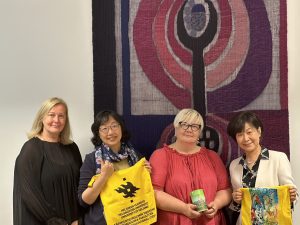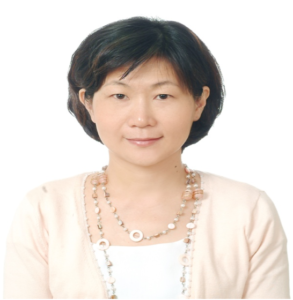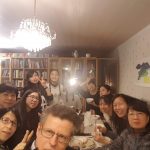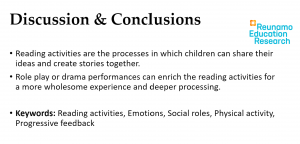 Professor Hui-Hua Chen and professor Jyrki Reunamo presented the results of the Taiwan observation in Frankfurt (International Conference on Early Childhood Education and Teaching Systems). Children spend more time in different, mostly adult-led reading moments than in Finland (half an hour a day), so reading is an important part of children’s everyday life, just because of the quantity. However, the quality needs enhancements. Reading situations are used sparingly from the point of view of children’s emotions, sociality, and learning. The pedagogical possibilities of reading situations are used to little advantage. Unfortunately, children often remain passive recipients in reading situations, and the images evoked by the book are not evoked in group processes.
Professor Hui-Hua Chen and professor Jyrki Reunamo presented the results of the Taiwan observation in Frankfurt (International Conference on Early Childhood Education and Teaching Systems). Children spend more time in different, mostly adult-led reading moments than in Finland (half an hour a day), so reading is an important part of children’s everyday life, just because of the quantity. However, the quality needs enhancements. Reading situations are used sparingly from the point of view of children’s emotions, sociality, and learning. The pedagogical possibilities of reading situations are used to little advantage. Unfortunately, children often remain passive recipients in reading situations, and the images evoked by the book are not evoked in group processes.
Chen, Hui-Hua & Reunamo, J. (2024). Comprehension and Practice of Reading Activities in Taiwanese preschools. International conference on early childhood education and teaching systems (ICECETS-24). 8. tammikuuta 2024. Frankfurt, Germany.


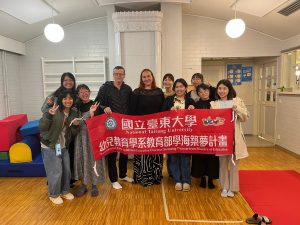 Taiwanese students from Taitung University did their practicum studies in Heikkilän päiväkoti, Kerava. The students showed remarkable sensitivity and consideration to support children and pedagogy. A big thank you to director Johanna Nevala for making it all possible. Special thank you to the staff introducing Finnish early education to the students!
Taiwanese students from Taitung University did their practicum studies in Heikkilän päiväkoti, Kerava. The students showed remarkable sensitivity and consideration to support children and pedagogy. A big thank you to director Johanna Nevala for making it all possible. Special thank you to the staff introducing Finnish early education to the students!